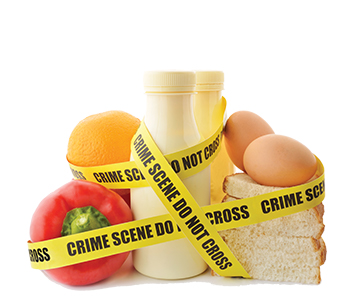Keep Your Family Safe When Preparing Meals
By Sandra Bolan
Now that most of West Georgia is staying home in an attempt to flatten the curve of the devastating coronavirus, more of us may be preparing meals for our families ourselves.
Preparing and handling foods safely can help prevent your family from becoming seriously ill.
Food safety is more than just throwing out expired items and washing your vegetables and fruits.
Avoid these common food safety errors to protect your household.
Not practicing proper handwashing. Bacteria that causes illness can live a long time, including on your hands. Wash your hands for a minimum of 20 seconds with warm water and soap before handling any food.
Thawing frozen foods on your counter. Food should never be left on the counter to thaw. Dangerous foodborne pathogens can quickly multiply when foods are between 40 degrees and 140 degrees Fahrenheit. Thaw food in cold water, the microwave or in the refrigerator only.
Not sanitizing or replacing dishcloths and kitchen sponges.These two items can be the most dangerous ones in your kitchen if they aren’t sanitized or replaced properly. Sanitize these at least every other day and replace your sponge once a week to protect against harmful foodborne pathogens.
Trying foods that are questionable to see if they’re still edible. Tasting even a small amount of food that is contaminated can cause you to become seriously ill. It is impossible to see, smell or taste all of the bacteria that can cause food poisoning. Be sure to throw away all expired food.
Undercooking seafood, eggs, poultry or meat.Food must be cooked at a high enough eternal temperature to kill bacteria. A food thermometer is the only way to know if the cooked food is safe to eat.
Marinating raw seafood or meat on the counter or reusing the marinade on cooked foods.You should always marinate your meat, seafood or poultry in the refrigerator to avoid harmful bacteria. If you want to reuse your marinade, you must bring it to a boil before using on the cooked food.
Washing poultry and meats.Meat and poultry should never be washed before cooking. Washing them can spread bacteria all over your countertops, sink and other surfaces. The only raw things you should wash are your fruits and vegetables.
Placing cooked foods on dishes that originally contained raw meat.Use separate serving dishes, utensils or cutting boards to keep raw poultry, seafood or meats away from ready-to-eat or cooked foods.
Leaving food out for long periods of time.Food should not be left out of the refrigerator for more than two hours, or one hour if the temperature is over 90 degrees outdoors.
Eating raw foods that contain uncooked flour and eggs, such as cookie dough.Raw eggs may contain Salmonella or other harmful foodborne pathogens. Raw flour can also contain E. coli that could cause you or your family to become ill.
As the family’s cook, you are the gatekeeper for your loved ones’ health. Harmful foodborne bacteria can cause serious illness, and the proper precautions should be taken when preparing meals for your family. This is especially important for family members who are children, elderly or pregnant women. WGW




